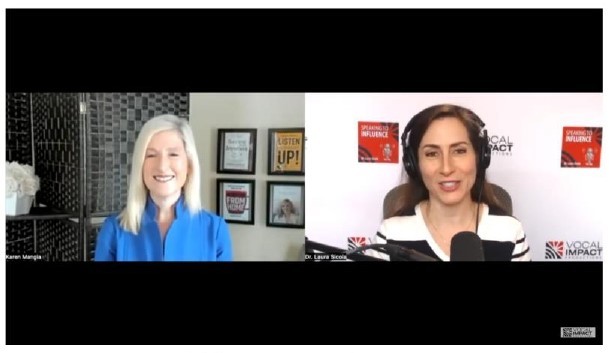Do any of the following sound familiar?
- You thought you hit reply… but actually hit reply-all
- You agreed to help someone with something before realizing exactly what you just committed yourself to doing
- You said something to someone, and instantly realized it sounded different (and much better) in your head
- You rambled on and on in the answer you gave (in conversation or email), and realized later that most of what you said was utterly unnecessary
The list goes on, but I’ll spare your cringe-reflex.
A few applications like Gmail or WhatsApp allow written messages to be deleted or unsent, at least for a few seconds. But when you’re speaking to another person, once the words are out of your mouth, you can’t put them back in.
We've all been on that road far too many times, wishing we had taken a different path.
Fortunately, on this week’s episode of Speaking to Influence podcast, Karen Mangia, President & CSO of the Engineered Innovation Group, shared three key steps (“The Three Ps”) to avoiding those moments of massive regret.
1. PAUSE – Write a draft then put it away for a while and revisit with fresh eyes later before hitting the “send” button, or wait until you’re calmer before confronting someone about whatever displeased you.
2. PONDER – Ask yourself some key questions before you hit send, such as
a. Do those thoughts truly need to be expressed?
b. How should they best be expressed?
c. Do they need to be expressed right now?
d. Do they need to be expressed by you?
e. Is it better to send an email, text, pick up the phone, or walk into their office?
f. Who else should or should NOT be copied?
g. What impact do you want it to have, and what do you think the impact will be?
h. Was the sentiment and intention clearly communicated?
3. PRIORITIZE – Your to-do list is huge… but don’t get lost in the weeds. Ask yourself:
a. What needs to get done first?
b. What information is most important and should be included?
c. What could and should you omit?

Karen was a veritable fount of knowledge. In our conversation she also covered:
- The importance of defining what success looks like for each one of us in order to achieve it
- How changing your story changes your results
- How to connect with the other person in every conversation
- How to avoid falling into bad habits of lecturing others instead of listening
- Why and how to take a moment to listen to yourself.
And if that’s not enough, she shares her six-step formula for paving the way to take the charge out of difficult conversations. The acronym to help you remember the formula? SCI-PAB.
Oh – you wanted me to tell you what SCI-PAB stands for? You’ll have to tune in to the episode, or watch it on YouTube here – enjoy!



